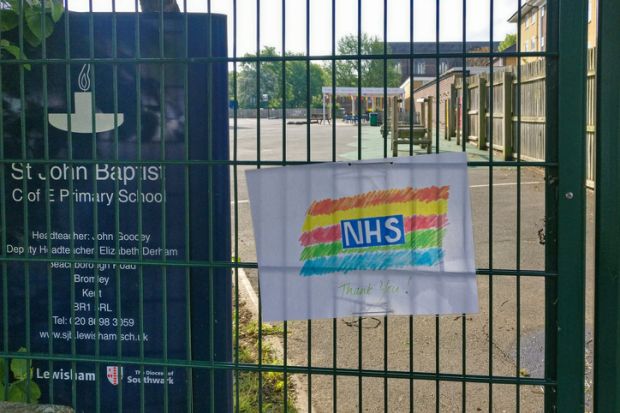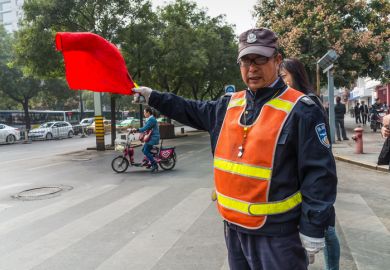UK universities should narrow the list of staff they consider key workers and reduce workloads so staff can cope better while looking after children at home, academics have said.
Schools have reported a surge in pupils attending schools during the current lockdown because their parents are deemed key workers, which has led to concerns that it will be difficult to restrain the spread of coronavirus.
However, many staff at universities report being encouraged to consider themselves as critical workers.
Guidance from the Department for Education says that “those who are required to deliver or to support delivery of teaching or research and the provision of appropriate university facilities (including catering, cleaning and provision of study spaces including laboratories and libraries) are considered critical workers for the purposes of access to education and travelling to work counts as a reasonable excuse,” it says.
“Parents and carers who are critical workers should keep their children home if they can,” the guidance adds.
University staff have said that while they feel conflicted about sending their children into schools given the strain on resources, the pressure to keep up with their workloads has led them to feel it is their only choice.
One academic tweeted: “I’ve taken a part-time key worker school place and swing between invincibility and crushing guilt.”
Academics called on the government and universities to relieve the pressure on staff.
Sneha Krishnan, an associate professor in human geography at the University of Oxford, has written a letter for people to send to their local MP asking them to take up the issue, citing deep concern that schools are overburdened beyond the 10 per cent attendance capacity that the National Education Union has suggested.
She called for the government to extend public grants and funding, such as those provided by research councils. Universities in turn must reduce workloads and give staff the option of going on furlough, she said.
“Academic parents are genuinely struggling...If some of them are seeking to send their children to school as critical workers, it is because doing a full-time job at home and providing childcare is entirely unsustainable,” Dr Krishnan told Times Higher Education. “When universities encourage them to send their children to school rather than provide mitigations of workload or other adjustments, they are simply transferring the bulk of the Covid-19 risk from universities to schools.
“What is sacrificed is school staff’s right to a safe place of work and the community interest in reducing transmission.”
Petra Boynton, a social psychologist who advises universities on student and staff safety and well-being, said it made sense for researchers working on the Covid vaccine and other critical healthcare problems or people whose tasks could not be done from home, such as maintaining labs or ensuring the safety of students still on campus, to be given key worker status.
However, “the pressure to work and produce has not let up for others even though it could, despite the additional pressures at home”, she said.
Universities must “recognise that we are in a pandemic” and do what they can, such as allow more asynchronous teaching so staff can record lectures at any time, or allow non-essential researchers to have a sabbatical or go on furlough, she said.
“Otherwise, they will be pitting educators in schools and universities unnecessarily against each other,” she said.
Raj Jethwa, chief executive of the Universities and Colleges Employers Association (Ucea), said that there “have understandably been a range of queries from HEIs as they work hard to support students during the lockdown. Ucea has been liaising with the Westminster and devolved nation governments to clarify which HE staff are considered to be critical workers.
“This is particularly important for working parents in respect of access to school places, travel to work and for childcare purposes. As the situation around Covid-19 is developing quite quickly we appreciate that this is a challenge for government. Once we have that clarity we will share it with our members.”





